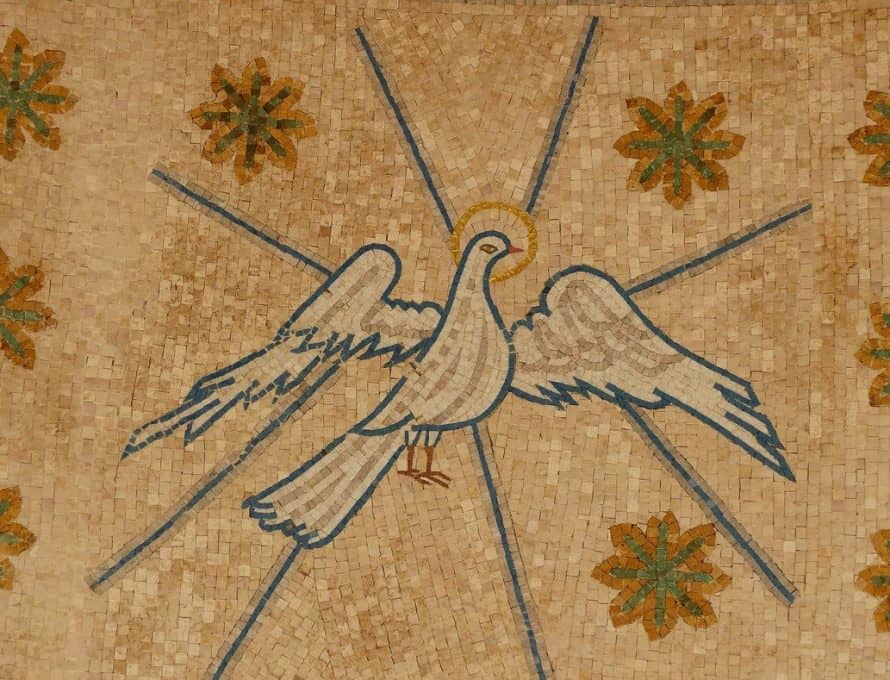This is another in a series of excerpts from “What Every Christian Should Know About the Trinity,” published by the MBC’s High Street Press (visit highstreet.press).
In the last column, we examined the biblical evidence for the personhood of the Holy Spirit; that is, the Spirit is a He, not an it. Once the Spirit’s personality is established, His deity is a logical, and biblically faithful, next step. So, what do we see the Spirit doing that only God can do?
For starters, the Holy Spirit creates. Genesis 1:2 records, “Now the earth was formless and empty, darkness covered the surface of the watery depths, and the Spirit of God was hovering over the surface of the waters.” The Hebrew verb translated “was hovering,” used also in Deuteronomy 32:11, suggests that the Spirit of God was watching over His creation just as a bird watches over its young. Further, creatures come into being when God sends His Spirit (Ps. 104:30).
In addition, the Spirit demonstrates omniscience and omnipresence, displaying qualities that establish Him as co-equal and co-eternal with the Father and the Son.
Of the Spirit’s omniscience, Paul writes, “Now God has revealed these things to us by the Spirit, since the Spirit searches everything, even the depths of God. For who knows a person’s thoughts except his spirit within him? In the same way, no one knows the thoughts of God except the Spirit of God” (1 Cor. 2:10-11).
Of the Spirit’s omnipresence, the psalmist asks, “Where can I go to escape your Spirit? Where can I flee from your presence? If I go up to heaven, you are there; if I make my bed in Sheol, you are there” (Ps. 139:7-8).
What’s more, the Spirit shares a divine name, symbolic of divine presence, with the other members of the triune Godhead. Before Jesus ascends into heaven, He commands His followers, “Go, therefore, and make disciples of all nations, baptizing them in the name of the Father and of the Son and of the Holy Spirit” (Matt. 28:19).
Perhaps the clearest passage that illustrates both the personality and deity of the Holy Spirit is found in Acts 5. After Ananias and Sapphira fraudulently claim to have given the full proceeds of a land sale to the church, Peter confronts Ananias, asking, “[W]hy has Satan filled your heart to lie to the Holy Spirit and keep back part of the proceeds of the land? Wasn’t it yours while you possessed it? And after it was sold, wasn’t it at your disposal? Why is it that you planned this thing in your heart? You have not lied to people but to God” (vv. 3-4).
To whom did Ananias lie: to the Holy Spirit, or to God? The answer, of course, is that Ananias lied to both. To lie to the Holy Spirit is to lie to God since the Spirit occupies an equal place in the Trinity with the Father and the Son.
Consider what the apostle Paul writes to the Corinthians in two related passages. First, in 1 Corinthians 3:16-17, he asks, “Don’t you yourselves know that you are God’s temple and that the Spirit of God lives in you? If anyone destroys God’s temple, God will destroy him; for God’s temple is holy, and that is what you are.”
Paul uses similar language three chapters later: “Don’t you know that your body is a temple of the Holy Spirit who is in you, whom you have from God? You are not your own, for you were bought at a price. So glorify God with your body” (1 Cor. 6:19-20).
Put simply, when the Holy Spirit indwells us, God indwells us. By equating the phrase “God’s temple” with “the temple of the Holy Spirit,” Paul makes it clear that the Holy Spirit is God.
The writer of Hebrews contributes to this theme, stating that the Holy Spirit is eternal, an attribute of God: “For if the blood of goats and bulls and the ashes of a young cow, sprinkling those who are defiled, sanctify for the purification of the flesh, how much more will the blood of Christ, who through the eternal Spirit offered himself without blemish to God, cleanse our consciences from dead works so that we can serve the living God?” (Heb. 9:13-14).
Finally, Paul refers to the Spirit as “Lord,” using the Greek word kyrios. This term is applied to other members of the Godhead in the New Testament, and it is the word used to translate the divine name Yahweh in the Septuagint, the Greek translation of the Old Testament.
Paul writes, “Now the Lord is the Spirit, and where the Spirit of the Lord is, there is freedom. We all, with unveiled faces, are looking as in a mirror at the glory of the Lord and are being transformed into the same image from glory to glory; this is from the Lord who is the Spirit” (2 Cor. 3:17-18).
Next: The Spirit’s intimate relationship.

